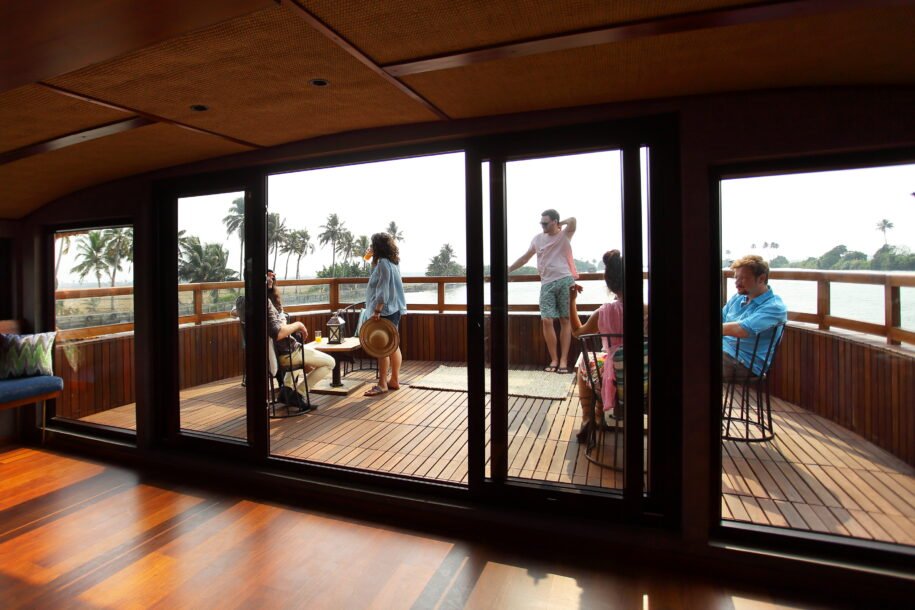Twenty browser tabs. Three comparison websites. You’re toggling between hotel reviews, trying to decode if “cozy” actually means tiny, and wondering whether that Kerala houseboat photo was taken with a very good camera or if it really looks like that. Then there’s the flight timing, the transfers, figuring out cancellation terms written in paragraphs of legal text.
Most people think doing it all themselves is cheaper and gives them more say in how things go. For a basic beach holiday, maybe. But India? India’s different. The country’s massive, things work in their own way, and what looks straightforward on a map rarely is.
Someone Who Actually Knows the Place
Last time you planned a trip somewhere new; how many hours went into just the basics? Which neighborhood to stay in? Whether that tour company with the glowing reviews is run by someone who actually knows their stuff or just has good SEO?
Tour operators live and breathe these destinations. They’ve sent clients to the same houseboats, used the same drivers, worked with the same local guides for years. They know the guy who does temple tours isn’t just reading from a script; he grew up near the temple and his stories are the ones you’ll remember. They know which properties look good in photos but have maintenance issues, or which beaches turn into tourist circuses during certain months.
Book everything yourself and you’re piecing it together from scratch. Sometimes you luck out. Other times you end up at a place that photographed well but feels off when you’re actually there.
The Logistics Aren’t Simple
Say you want to see Kerala properly; houseboats in Alleppey, hill country around Munnar, maybe end at the beach. Sounds simple enough until you start actually booking it.
Three hotels. Transfers between each. Possibly a short flight. Then the actual experiences; you want a cooking class, to see Kathakali dance, tour a spice plantation. Each thing needs booking separately. Different websites, different vendors, half of them want bank transfers, the other half take cards but the payment page looks like it’s from 2005. You’re managing confirmation emails in three languages and hoping you didn’t miss something important buried in the fine print.
One email goes to spam and suddenly nobody’s picking you up from the airport at midnight.
Operators do this for a living. Your car shows up. Your room’s ready. The houseboat staff knows you’re coming. Something needs adjusting? Call them. They fix it.
When Things Go Wrong (And They Will)
Nobody wants to think about this part, but travel hiccups aren’t a matter of if. They’re when.
Indian domestic flights delay all the time. Weather changes plans. Or you arrive somewhere and realize it’s just not what you expected from the listing. Maybe you love a place so much you want to stay longer. Monsoons show up early. Sometimes you just want to stay an extra night somewhere because it’s that good.
Try handling a missed connection at 2 AM when you’re exhausted and stressed, calling hotels and transfer companies yourself. Or worse, try getting a refund from a property that isn’t meeting your expectations when you have no leverage and no relationship with them.
With an operator, you text or call your contact. They deal with it. They have relationships with these properties, they know who to talk to, and honestly, places take their calls more seriously than they take yours. That’s just how it works.
The Deals Aren’t What You Think
Everyone assumes booking direct gets you the best price. Hotels often claim “best rate guarantee” on their websites. But luxury travel doesn’t work like budget airlines.
Operators have contracts with properties. They send them consistent business. In return, they get allocations of upgraded rooms, included amenities, late checkouts, complimentary spa credits: perks that never appear on booking sites. A room upgrade alone can be worth several hundred dollars, and you didn’t even have to ask for it.
Plus, when you’re booking a complex itinerary, operators often have better package rates than you’d pay piecing everything together yourself. The math isn’t always obvious upfront, but it works out.
What You’re Actually Paying For
Working with a luxury tour operator costs money; either built into the price or as a planning fee. That’s not a secret. The question is whether that cost is worth what you get.
You’re not just paying for bookings. You’re paying for someone who knows what they’re doing to build you a trip that makes sense, point you toward things you’d never find in a google search, and handle the boring parts so you don’t have to. Also, all those hours you would have spent researching? You get them back.
Some people like planning trips down to every detail themselves. If that’s you, and you have the time and patience for it, booking direct can work fine for straightforward trips.
But most people don’t want their vacation to start with weeks of unpaid project management work. They want to show up, have everything taken care of, and actually relax. That’s what a good operator delivers.
The Honest Truth
Booking direct makes sense for simple trips. One city, one hotel, you know what you’re doing. A week at a Goa resort? Do it yourself, save the planning fee.
Multiple stops, varied experiences, places where things get complicated: that’s when an operator earns their keep. Not that you couldn’t figure it out on your own. But why spend your limited vacation time becoming an amateur travel coordinator? Spending them dealing with travel logistics instead of actually experiencing the place seems like a waste. Having someone competent handle the background work so you can focus on being there—that’s the actual luxury.
If you’re looking at Kerala’s backwaters, Spice Routes runs proper luxury houseboats where you’re not sharing space with random groups. Worth checking out.
